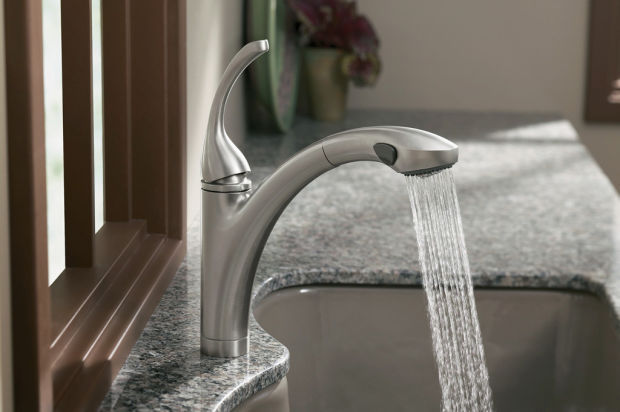Tucson Water might expand its service area — to include a planned Marana school site — for the first time since it cracked down on that practice nine years ago.
On Wednesday, the Tucson City Council will discuss what would amount to a water service swap between Tucson and Marana. Tucson Water would serve the school site in return for giving up its obligation to serve seven other Marana land parcels.
Its outcome could hinge on whether the proposal saves water for Tucson or not. The answer appears unclear.
One councilman, Paul Cunningham, opposes the service extension on a number of grounds, including a concern that approving the request will lead to pressure on the council from other landowners.
Mayor Jonathan Rothschild and Councilman Steve Kozachik said they’re not concerned about this request setting a precedent and would be inclined to support it if the water savings are adequate or if it otherwise strengthens the water system. For now, Kozachik is dubious about the savings estimates.
As the proposal stands, Tucson Water would deliver water to a new Science Technical Enginering Math (STEM) school in Marana, at a range of 20 to 45 acre-feet a year. The 20-acre school parcel lies in the Dove Mountain area north of Tangerine Road, next to a parcel the city is obligated to serve.
In return, Marana would agree to serve seven parcels far away, in the Continental Ranch area along Interstate 10.
Tucson Water first estimated the proposal would save the utility up to 125 acre-feet a year, nearly three times the maximum that it would provide the school.
After an activist critic challenged the estimates, the utility dropped the savings ratio to 2-to-1. The critic, Carolyn Campbell, says that’s probably still too high.
“Even if this wasn’t against water policy, it’s not a good deal,” said Campbell, director of the Coalition for Sonoran Desert Protection.
The school site doesn’t meet Tucson’s existing water service policy. The policy requires that any new service outside city limits go to parcels surrounded on three sides by parcels the city serves, or by vacant parcels it has agreed to serve once they’re developed.
Starting in late 2007, Tucson refused to serve outside its existing service area in a temporary measure. A formal policy to that effect was adopted in 2010.
Russell Federico, a Marana Unified School District official, said the new school will provide “enhanced learning opportunities that prepare our children for employment in a society with increasing demands for a technological skills and analytical thinking.” The city’s extension of water is needed before the district can acquire the land and build the school.
It’s uncertain if the district can get Marana water service in that area because the town’s water infrastructure is quite a distance away, said Federico, the district’s operational support director.
Among the lands Marana would agree to serve under the proposed water swap is the site of a new, centralized transportation and operations center for the school district.
That project plus the new school would generate more than $30 million worth of construction work, Federico wrote in a letter to Tucson officials.
Cunningham said it’s not his role as a Tucson councilman to support Marana economic development with water service. He wants assurances that reclaimed water will be put on the school site’s turf, as it’s used on many Tucson school grounds.
“I think any time you deviate from the the path of the water policy you compromise the stability of the policy,” he said. “Why have a water service policy when you can change it on a whim?”
In a memo to the council, however, Assistant City Manager Albert Elias said approval of the water swap “shall in no way alter the water service policy ... (and) shall in no way set a precedent that obligates mayor and council to future modifications.”
Kozachik and Rothschild agreed.
“Any time we can strengthen our water service area, then we shouldn’t take the view that it can never be changed. We should take the view that the facts can change so the area can change,” Rothschild said.
By Campbell’s calculations, the new Marana school site would likely use more water than Tucson would save on the seven parcels.
Two of the seven parcels that Marana had originally agreed to take over serving turned out to be county-owned open space parcels that currently can’t be developed. Late Friday, Tucson Water said it has found two other parcels for Marana to serve.
A third parcel — the site of the planned Marana transportation-operations center — would need up to 33 acre-feet of water, Tucson Water estimates. Campbell said she checked with three other school transportation facilities, including Tucson Unified School District’s main administration-transportation center, and found that none uses even two acre-feet a year.
Two other parcels are already developed as businesses and one uses no water, she noted, wondering why they require the city to serve them additional water.
Tucson Water based its estimates on the parcels’ zoning. It could someday allow much more development there, utility spokesman Fernando Molina said.





